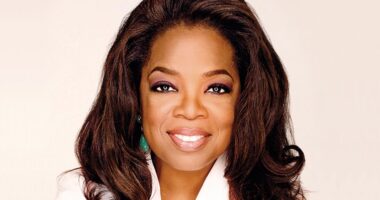The wealth gap between black and white Americans is a problem that most people are aware of in the abstract. The depths of the issue, however, are more than most people realize. At the current pace, the problem isn’t going away anytime soon. The wealth disparity between black and white families will take 228 years to close, according to the Institute for Policy Studies.
Although black Americans have an annual spending power of $1.2 trillion, their households only held a median of $11,000 of wealth in 2013, according to federal data. What’s even more disturbing is that by 2053, the median wealth for black families will fall to zero if the gap continues to widen at its current pace. The median wealth for white Americans is 12 times higher than that of black Americans at around $140,000, and the inequality in wealth continues to grow and widen with each generation. Just in the past 30 years, which is around the median age of a millennial, white families’ wealth has grown three times that of a black family, the Institute for Policy Studies shared.
Generational wealth, financial assets that are passed on and built upon with each generation within a family, is particularly important to future financial security. It’s the foundation for opportunities and access to better education, health, and jobs.
The racial wealth gap “starts with our nation’s history of institutionalized racism, discrimination, bias, and restriction from information and opportunity,” says Rodney Sampson, co-founder of Opportunity Hub (OHUB), the largest black-owned multi-campus entrepreneurship center and technology hub in the U.S. “Although these constructs remain today,” he says, “black Americans through exposure, knowledge, and access to work, entrepreneurship, and investment opportunities in the innovation economy have the greatest opportunity to create new multi-generational wealth with no reliance on pre-existing multi-generational wealth.”
Black Americans’ financial legacy is more important than ever, and one group that can start to make a difference in the wealth gap are black millennials. This group is more educated and innovative than generations before, creating more opportunities to accumulate the wealth their parents were not able to. As millennials prepare to become the largest generation in the U.S. and the largest group in the workforce, it’s just the right time for black millennials to start securing their legacies by building the generational wealth needed to close the racial wealth gap.
Opportunity In Real Estate
According to A. Donahue Baker, there are only two options to build generational wealth: real estate or business ownership. Baker is a CPA, entrepreneur, and real estate developer who has created wealth by doing both. His real estate development company, Baker Capital, owns over 400 units nationwide. “One of the primary methods that I’ve used to create generational wealth is real estate. The barriers to entry are very low, and it’s one of the ways in which just about anybody could create an additional stream of income,” Baker shared.
According to the Economic Policy Group, “Housing equity makes up about two-thirds of all wealth for the typical (median) household. In short, for median families, the racial wealth gap is primarily a housing wealth gap.” In the past, housing policies prevented blacks from owning land, acquiring loans, or gaining access to certain neighborhoods through red-lining, which created a challenge for homeownership. In the present day, millennials are reluctant to enter the housing market. With less income coming in to spend compared to the generations before them, around 30% of millennials live at home with their parents, while 60% choose to rent, according to Goldman Sachs.
Baker suggests that the attitude about real estate needs to shift in order to take the first step into building generational wealth through real estate. Baker, who has properties in Atlanta, Florida, and New Jersey, opted to start buying properties in more affordable markets. “By the time they’re 30 years old, millennials in New York City would have already spent $100,000 on rent. Within a 30-mile radius of the city, I could buy a four-family house for $100,000 in Newark, New Jersey,” says Baker. While New York City and California markets may be high, he suggests looking for property in the Southeast or other up-and-coming cities whose populations are growing and where corporations are building offices. “There’s a whole section of the country that’s available to people that they can purchase these multifamily properties and cash-flow them, rent them out, and they could create enough income from those properties that they can live rent-free if they choose to, because they’ll be making the same amount of money in income that they would normally be paying in rent,” advised Baker.
Student loan debt and credit obstacles can deter millennials from investing in real estate, but there are loan programs to get them started. “If you could get your credit to a 580, you can qualify for the FHA loan program. It’s a federally funded mortgage program and that basically allows you to purchase your first home as for as little as 3.5% down,” Baker says. (The program requires that buyers live in the home for at least 12 months.)
Building Wealth Through Entrepreneurship
In the age of the side hustlers, millennials are starting businesses at a rapid rate, which is also a great step in building wealth. An opportunity to help these innovators was created in 2013 by Rodney Sampson with Opportunity Hub along with programs like CodeStart, #YesWeCodeFund, #100BlackAngels, and HBCU@SXSW. “Nearly 20 years ago, I was the first black technology entrepreneur and cofounder in Atlanta to successfully close a seven-figure seed round and build a scalable startup. This was a very hard and lonely place and space to exist in,” Sampson said.
Now that he has built a community to help other entrepreneurs in Atlanta, OHUB has been repositioned to be an inclusive ecosystem building platform focused on four proven methodologies as a definitive path to creating opportunities in socially disadvantaged and underrepresented communities and beyond. With his help, he is equipping black entrepreneurs with resources and education that is not always given to disadvantaged groups.
Many black Americans don’t have access to the tools and education that comes with the expansion of innovation into metro cities. As tech companies infiltrate urban communities, those communities start to be redeveloped at rapid paces that make room for new occupants and innovation but leave behind or push out those who inhabited those spaces. This form of gentrification is known as innovation intensity, where the number of patents in a particular area has a direct impact on economic segregation, according to the Atlantic. “It is driven by the clustering of the affluent and advantaged knowledge workers who power innovation in the first place,” the article states. The clustering builds startup ecosystems that breed better education, shorter commuting time, entertainment hubs, and higher housing prices.
Sampson’s company helps accelerate multigenerational wealth creation within the innovation economy. “Innovation economy is the future of work. If you just study what jobs will exist, what job does not exist, and what jobs may exist, it’s all in the innovation economy. We see through high growth in startup entrepreneurship, more millionaires, billionaires and thousand-naires created because entrepreneurship and from building a company from the ground up, then selling it or having it be acquired,” Sampson said.
Sampson believes that black Americans can disrupt the wealth disparities while working in the innovation economy and entering the knowledge-based high-tech industries. He thinks that instead of the traditional college-to-corporate-America pipeline, there needs to be more emphasis on entrepreneurship. “There is a direct correlation between innovation (tech) and income inequality. In order to disrupt this, we’ve got to make sure that more black people are participating at every viable stage of the innovation economy. Rather than always aiming to work for big companies and big brands where the upside is small, we can pursue work opportunities at funded high-growth startup companies where we negotiate cash and equity deals. They can then start their own companies,” he said.
As black millennials find mentors, incubators, and other resources to help begin their journey to building wealth, one thing is certain that it will not happen overnight. It’s the small steps like saving, investing, understanding the wealth gap, and mapping a legacy that will start to move the needle for black families.
Baker reminds us that the small steps black people take today can ensure that the future generation is better equipped. “That’s the whole concept of generational wealth. It’s really about understanding that it’s not a race; it’s more like a marathon. It’s not something that can be in one lifetime,” he says.










